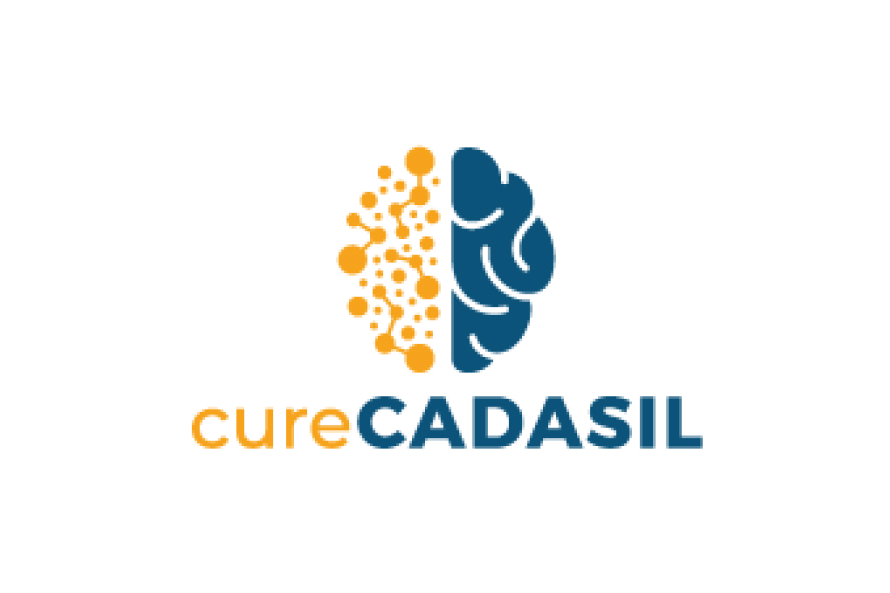cureCADASIL Association
Patient-Partnered Collaboration
CADASIL (Cerebral Autosomal Dominant Arteriopathy with Sub-Cortical Infarcts and Leukoencephaolopathy) is a rare, inherited form of cerebrovascular disease that occurs when the thickening of small blood vessel walls in the brain's white matter blocks the flow of blood to the brain. It is the most common hereditary condition leading to small-vessel vascular cognitive impairment and dementia.
Last updated 04/30/2025
Clinical
Disease Class
Circulatory system diseases
Neurological diseases
Vascular disease
Body Systems
Cardiovascular / Circulatory
Nervous / Sensory
Organs
Brain
Nerves
Veins
Known Genetic Link
Yes, one or more genes directly cause the condition
causative_genes
NOTCH3
contributory_genes
None specified / unknown
Type of Inheritance
Autosomal dominant
Newborn Screening
No
Disease Mechanism(s)
Protein misfolding
Age of Onset
Adulthood (age 18-64)
Average Age at Diagnosis
Adulthood (age 18-64)
Life Expectancy
Adulthood (age 18-64)
Elderly (age 65+)
Affected Sex(es)
Female
Intersex
Male
National Prevalence
10000+
Global Prevalence
10000+
National Incidence
Less than 10
Global Incidence
Less than 10
Populations and/or ancestry with higher prevalence
Reported in European, American, Middle Eastern, African, and Asiatic families; there may be a higher prevalence in Asian families
Symptoms / Phenotypes
behavioral changes
cognitive impairment / confusion / brain fog
dementia
gait abnormalities / gait disturbance
headaches / migraines
seizures / epilepsy
stroke
Biomarkers
Diagnostic
· deposition of granular osmiophilic material (GOM) on small blood vessels
Existing Therapies
None
Organizational & Research
Cell Lines
None
Cell Lines, share
Unknown
Disease Model
None
Disease Model, share
Unknown
Clinical Trial Role
Not involved
Biobank, Institution
None
Center of Excellence, Institution
None
Registry
Yes, we have a registry that we created
Data Collected, Registry
Genetic data
Patient contact info
Patient-reported data
Data Entered by, Registry
Patients
Platform, Registry
IAMRARE
Natural History Study
Yes, we have collaborated on a natural history study
Data Collected, Natural History Study
Clinical endpoints (outcomes)
Electronic health records/electronic medical records
Genetic data
Imaging data
Medication usage
Platform, Natural History Study
Not specified
FDA Patient Listening Session
No
FDA Patient-Focused Drug Development (PFDD) Program
No
ICD Codes
Yes, we have an ICD-10 code specific to our exact disease
Diagnostic Guidelines
No
Science Advisory Board Policies
Yes, willing to share SAB policies
Research Network Policies
Does not have a CRN
Research Roadmap
Yes we have a Research Roadmap, and will share policies
International Chapters
None
International Partners
None
